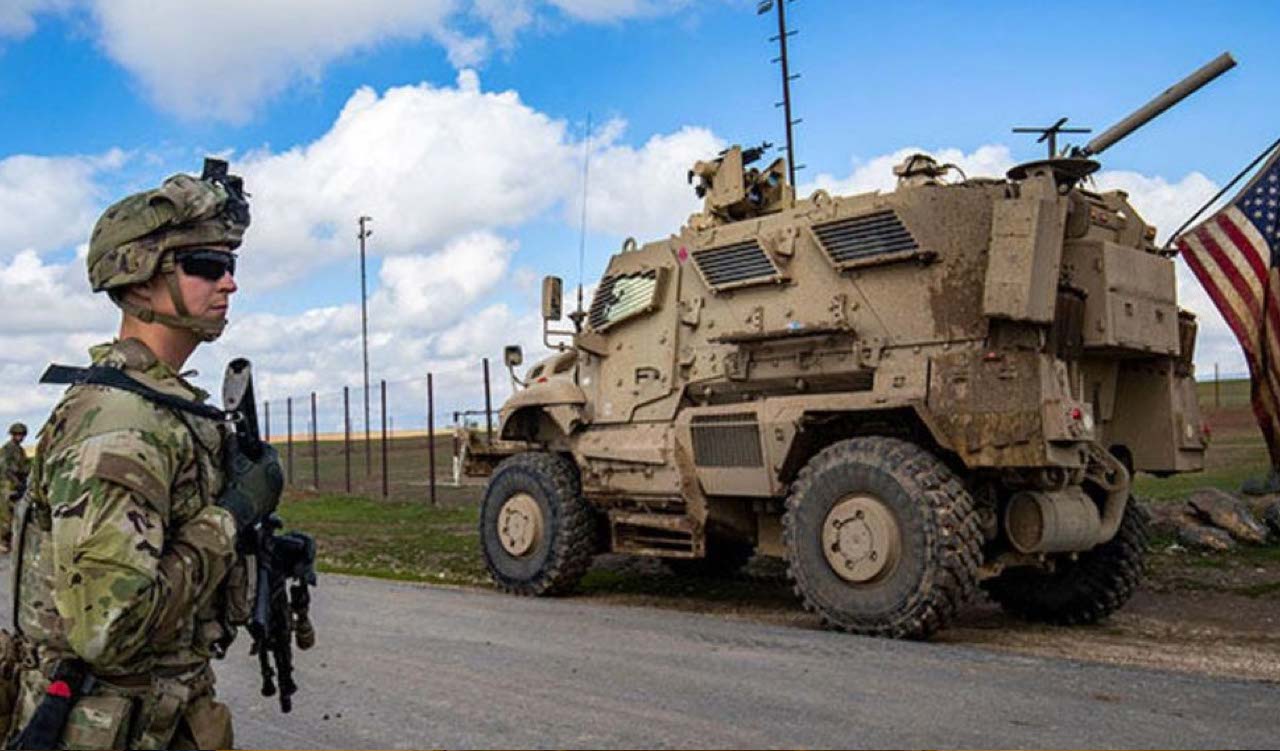Pro-Iran Militias Continue Attacks against US Forces in Iraq, Syria, as Biden Administration Criticized for Weak Stance

WASHINGTON DC, United States (Kurdistan 24) – Pro-Iranian forces on Monday continued their attacks against U.S. troops based in Iraq and Syria, who are part of the Defeat-ISIS Coalition. The attacks come after the U.S. has repeatedly called on the Baghdad government to protect Coalition forces.
The Biden administration does not seem to recognize—or is unwilling to recognize—the depth of Iranian influence in Iraq and the difficulties the Baghdad government would have in any attempt to move decisively against the Iranian-backed militias.
Indeed, a key Congressman, the Chairman of the House Foreign Affairs Committee, has called on the administration itself to adopt a much tougher, more forceful response to the militia attacks.
Militia Attacks in Iraq and Syria
Two attacks occurred against bases hosting Coalition forces in Iraq and Syria on Monday, as the AFP reported. One attack involved an explosive drone launched at Al-Asad Airbase in western Iraq’s Anbar province. A second assault consisted of a multi-rocket attack on Patrol Base Al-Shaddadi in Syria, which lies a short distance from the border with Iraq.
Such attacks have been ongoing for a long time, but they have accelerated with the war in Gaza. As the Institute for the Study of War summarizes the situation, “Iran and its so-called ‘Axis of Resistance’ are exploiting the Israel-Hamas war to support their objective of expelling US forces from the Middle East.”
Two senior U.S. officials recently spoke with Iraqi Prime Minister Mohammed Shi’a al-Sudani and called on his government to protect coalition troops and punish those responsible for the attacks.
The first was Secretary of State Antony Blinken, who spoke with Sudani on Dec. 1.
Read More: US Secretary of State Speaks with Iraqi Prime Minister
A week later, following a mortar attack on the U.S. embassy, as well as militia assaults on bases hosting U.S. troops in Iraq and Syria, Secretary of Defense Lloyd Austin spoke with Sudani, as well.
Read More: U.S. Cites Iran, as Militias Attack Numerous Sites in the Kurdistan Region, Iraq, and Syria
Even before their conversation, Sudani had issued an order directing the Iraqi security services “to pursue the perpetrators,” stressing that “targeting diplomatic missions is something that cannot be justified and cannot be accepted, under any circumstances and regardless of the allegations and illusions behind these shameful acts.”
In their discussion, Austin thanked Sudani for that statement. But it seems that Sudani lacks the power to enforce his own statement and control the militias. Indeed, on Saturday, The New York Times published a major story on Iran’s considerable influence in Iraq.
Read More: Strong Iranian Influence in Iraq: New York Times
Nonetheless, on Monday, both the State Department and Pentagon re-affirmed the need for Sudani to control the militias and protect U.S. forces.
“We expect the Iraqi Government to do more to hold accountable the Iranian-backed militias” who have attacked our embassy and military personnel, State Department Spokesperson Matthew Miller stated.
At the Pentagon, Press Secretary Maj. Gen. Pat Ryder spoke similarly, although the Pentagon appeared to be more understanding than the State Department of Sudani’s difficulties.
When he spoke with Sudani on Friday, Austin identified Kata’ib Hizbollah and Harakat al-Nujaba as the militias most responsible for the attacks on U.S. targets.
The U.S. did launch a retaliatory strike on Kata’ib Hizbollah, attacking its stronghold of Jurf al-Nasr, south of Baghdad, on Nov. 22.
Read More: U.S. responds to ‘close-range ballistic missile’ attack with strikes in Iraq
But Austin’s singling out Kata’ib Hizbollah and Harakat al-Nujaba in his discussion with Sudani—as cited in the U.S. readout of their conversation—marked the first time that a senior U.S. official had identified those two groups as the source of most attacks.
Asked about that on Monday, Ryder responded, “We know those groups are largely responsible for conducting these attacks.”
“So it’s calling them out and highlighting to them that we know what they’re doing,” he continued. “And I’ll just leave it at that.”
Key Congressman Calls for Tougher Response
Rep. Michael McCaul (R, Texas) is Chairman of the House Foreign Affairs Committee. On Monday, speaking on the Fox News program, “Your World,” he called for a much tougher U.S. response.
“We’ve had over 90 attacks on our troops in Iraq and Syria from Iran-backed militias, and for the most part that’s gone without any response,” McCaul told the host, Neil Cavuto.
“We’ve only had five response attacks,” McCaul continued, “and I agree with Gen. Jack Keane” that to provide deterrence, it is necessary to be ready to use force.
Keane served as Vice Chief of Staff of the Army until his retirement in 2003. A highly-regarded officer, he was a key adviser to Gen. David Petraeus during the U.S. “surge” in Iraq and is currently Chairman of the Board of the Institute for the Study of War.
McCaul noted that the Biden administration had significantly strengthened the U.S. naval presence in the Persian Gulf and the Red Sea, and “I think Iran is looking at this.”
“They see the deterrence value of such ships,” he continued, “but they do question our resolve, and I think our inability to respond to [the militia] attacks is making them question that much more.”
